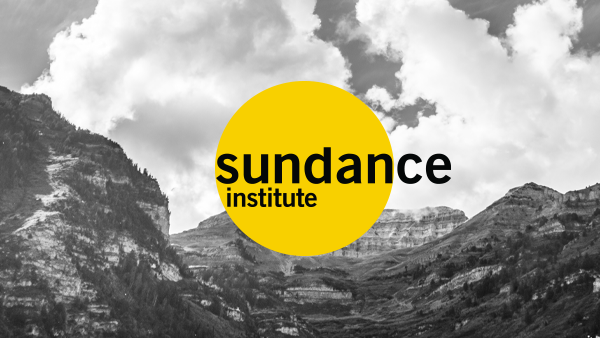Kirsten Johnson
Filmmaker Kirsten Johnson was funded by the ‘Stories of Change’ initiative to create a film based on Skoll-supported social entrepreneur Sakena Yacoobi, a short version of which premiered at the Skoll World Forum in 2010. Johnson attended the Skoll World Forum as a Sundance Institute Doc Program Fellow in April 2011.
When I was 16 years old, I had the role of “Marion” in a high school play of Absurd Person Singular by Alain Ayckbourn.
My character was an over-the-top British woman invited for dinner at a young couple’s home, who, upon seeing that their new washing machine had dials marked “whites” and “colors,” giddily exclaimed, “It’s apartheid!” It was 1981, and as a white teenager being raised in a religious and “apolitical” household in suburban Seattle, I had never heard the word before. When I asked my teacher what it was, I was stunned to learn that it was being practiced in South Africa at the time. Perhaps I was even more shocked by my own ignorance. It was a switching on of a light bulb moment and it changed the course of my life.

Archbishop Desmond Tutu at the Skoll World Forum in Oxford, England.
This week I was in Oxford, England, for the Skoll World Forum, almost 30 years after my moment of epiphany. Imagine the wonder I felt to be sitting in the audience as the Archbishop Desmond Tutu described himself as a light bulb! Referring to himself in the third person, the Archbishop said, “Perhaps he shines like a light bulb—Desmond Tutu, but only when connected.”
Pointing to the assembled crowd, he insisted that “without all of you,” he is “just a light bulb on a table,” unable to glow. Now, if that’s the case, it must be the most rare combination of vision, determination, and lovability to ever be found in a light bulb! If you haven’t had the extraordinary luck to hear the man laugh in person, find an audio track of it and listen—there’s nothing like it. And there’s no one like him, even though he says he depends on all of the rest of us to shine.
The Archbishop was in Oxford because he was being awarded the status of “Treasure of Humanity” by the Skoll Foundation. Created by Jeff Skoll and Sally Osberg in 1999 to support social entrepreneurs, the Skoll World Forum has been convening its awarded entrepreneurs and stakeholders annually for the last seven years in order for people working in the field to meet, share their experiences, and expand the impact of their work.
For the last five years, the Skoll Foundation and Sundance Institute have invited four filmmakers to the Skoll World Forum as part of their unique ‘Stories of Change’ partnership, to expand the ways in which storytelling can be an integral part of helping social entrepreneurship thrive.
Thanks to the Sundance Institute Documentary Film Program, I was invited to take part – and I marveled at the incredible range of people trying to do something about global challenges and did my best to affirm that storytelling is a vital piece of the effort to combat injustice and protect of our planet.
Coming from the world of filmmaking, I learned a whole new vocabulary this week—social entrepreneurs use words like “impact” and “stakeholders”. Over the course of four days, there was lots of talking going on! Time expanded as we had a chance to meet and listen to more than 700 people in the networking sessions, panel discussions, lectures, dinners, and late-night after-parties.
We took part in several panels conducted by Sundance Institute’s Documentary Film Program, and had the chance to interact with one another. Our group included filmmakers Pamela Yates and Paco di Onis, as well as Wendy Levy and Andy Ellwood, in addition to Sundance Institute staff. And I thought I got sore throats at film festivals!
Thank goodness we all had the chance to keep quiet for a moment and just watch when the DFP screened an incredibly powerful film about the post-election ethnic tensions in Kenya called The Team. It was created out of a collaboration between John Marks of Skoll-supported Search for Common Ground and filmmakers Patrick Reed with producer Peter Raymont, who were on hand to present the film.
Watching it, I was once again amazed by how incredibly transporting film can be. For a few hours it felt like we were in Nairobi, not Oxford.
When Archbishop Tutu accepted his award, he maintained his humble approach. “I am in awe of the way you refuse to be discouraged by all of the awfulnesses.” I loved the way he said “awfulnesses.” Among the many new words I was learning, it remained one of my favorites. Indeed, what is awful in our current world is absolutely plural, and that is evident in the types of issues these social entrepreneurs are taking on—from sex trafficking and AIDS to child labor and poverty.
But to be in the presence of a man who has lived through Apartheid, fighting it every step of the way and all the while managing to keep a hilarious giggle, was uniquely inspiring. Thirty years ago I heard the word “apartheid” for the first time, and my dismay led me on a path I am still on today, trying to keep my eyes open to all of the “awfulnesses,” as well as the “gorgeousnesses” of the world.

Archbishop Desmond Tutu and musician Peter Gabriel at the Skoll Awards Ceremony.
In a workshop entitled “Say What? Storytelling, Language and Culture,” moderated by DFP Director Cara Mertes, we talked about how different languages can embody radically different notions. On the panel were Lera Boroditsky, a Stanford University professor; Martin von Hildebrand, director of the Fundacion Gaia Amazonas; and Naif Al-Mutawa, who has written a comic book called The 99, which gives form to progressive Muslim values.
Cara introduced the topic with examples of some spectacular mistranslations that had us all laughing. I thought to myself of the moment in Tutu’s speech when he congratulated people for doing the work they were doing, and he said that they were the “cat’s whiskers” instead of saying the “cat’s meow” or the “cat’s pajamas”!
After each participant spoke, Cara had members of the audience tell their own stories, reminding us that we are all invested in and capable of being great storytellers. When Paco de Onis took his turn, he shared how the Quechua people of Peru believe that the past is in front of them and the future is behind them.
I haven’t stopped thinking about it since. It really does feel like the future of diminishing and ill-used resources on an overcrowded planet is sneaking up behind us awfully quick! Throughout the course of the week I met many social entrepreneurs who are working on climate change, and as I spoke with them, I thought to myself that we as storytellers are still struggling to translate the language scientists are speaking in a way that can effectively communicate how desperately we need to be spurred into action.
As the future is tapping us on the shoulder, the present is being created by the new technology storytelling coming out of the Middle East such as cell phone content, streaming on YouTube, and news updates on Twitter. I find myself video chatting with filmmakers in Egypt and Syria and can’t believe that I live in this present—it fills me with hope for the future. I feel like the moment of extraordinary change we are experiencing in the Middle East represents the future of disenfranchised and frightened people gathering their courage to confront the corrupt and repressive political leaders of the past.
In lectures to the assembled audience of Skoll invitees, both Queen Noor of Jordan and Fadi Ghandour, CEO of Aramex, spoke passionately about the implications of this shift. Ghandour said that part of him felt a strong wave of vindication because he has been saying for years that the people who have been living under repressive regimes in the Middle East have not been asleep and powerless, but preparing for this courageous moment.
On the evening of the Skoll awards ceremony, we gathered and listened to Peter Gabriel and Baaba Maal perform “Biko,” Gabriel’s elegiac anthem for murdered anti-apartheid activist Steve Biko, killed in 1977. As I listened, I thought of the people of Tahrir Square, of those who could come out into the streets and those who could not in Bahrain, Libya, Syria, Yemen, and more.
Later that night, Skoll-supported social entrepreneur Paul van Zyl, who worked with Archbishop Tutu in the creation of the South African Truth and Reconciliation Commission, told me the story of how sick with worry he used to feel on the Wednesday mornings in the late 1980s when activists would assemble to go and march in the streets against the Apartheid regime, facing almost certain beatings by the police.
He told me that after hearing “Biko” that night in Oxford he went and told Peter Gabriel how once the activists began listening to the song before they went out to march, it somehow managed to calm their fears and make them more brave. Van Zyl said that Gabriel cried when he told him. The past and the future may be in front of us or behind us, but both certainly have the remarkable capacity to move in unexpected directions when we tell stories. That was evident all week long in Oxford.




